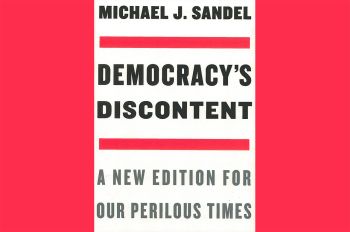Professor Stephanie M. Stern Co-Authors Book on Psychology and Property Law

Chicago-Kent College of Law Professor Stephanie M. Stern has published a book that explores how empirical, psychological research can inform our understanding of property law.
Property law has widespread impact on people’s daily lives and generates a substantial amount of civil litigation in the United States each year. Human dignity, personal attachment, and cultural values are intertwined with people’s relationships to property and are not always connected to law and remedies in an effective way. In The Psychology of Property Law, Stern and co-author Daphna Lewinsohn-Zamir, Dean and Louis Marshall Professor of Environmental Law at the Hebrew University of Jerusalem, examine the intersection between people’s perceptions and values and how these interact with property law systems. Using key findings from psychology, the authors consider whether the goals inherent in property laws can be achieved more successfully with different rules and suggest potential property law reforms.
“It focuses more on U.S. law but it definitely includes references not only to Israel, but to Europe and other countries,” Stern says. “We deliberately tried to make it a more global look at property systems, which I think is important if we’re thinking about mind and behavior with respect to property.”
Published by NYU Press, the book addresses a variety of property law topics to which social, cognitive, personality, and moral psychology can contribute. These include ownership and possession, legal protections for residential and personal property, takings of property by the state, redistribution through property law, real estate transactions, discrimination in housing and land use, and remedies for injury to property.
One chapter of the book looks at real estate transactions, an area in which the law generally assumes that people have engaged in rational information gathering, processing, and decision-making. Stern and Lewinsohn-Zamir found this assumption to be false. In real estate transactions, the volume of information is often overwhelming for sellers and buyers, and sellers are vulnerable to overvaluing their properties. In addition, some sellers may unconsciously deceive themselves about their property’s condition through a psychological bias known as motivated reasoning, while other sellers may engage in conscious dishonesty to push a sale.
In the absence of accurate and timely information from sellers, buyers often neglect or undervalue defects in housing. Psychology research offers insight on how to improve some of these pitfalls in real estate transactions. For example, one way to reduce dishonesty by sellers may be to use “individualizing (making individual identity more prominent) and cuing morality” to increase honest transactions. A psychology research study that found that placing an “I promise the information I am providing is true” statement with the signature line at the top of an insurance policy form elicited more honest responses from policyholders. Stern and Lewinsohn-Zamir suggest that a similar approach could be used on state real estate disclosure forms for sellers.
In takings law, which regulates the government power to take ownership of citizen property, Stern and Lewinsohn-Zamir examine studies that show that there is more popular and psychological resistance to certain types of takings than others. For example, people find that the use of eminent domain for private redevelopment is unjust and more distressing than eminent domain for a public roadway.
The last section of the book is devoted to the types of remedies that people perceive as most satisfying or most appropriate to certain types of property losses. The authors note that sometimes monetary damages are not as satisfying to people as an in-kind remedy, and that more research is needed in this area.
“The intersections between property law and psychology raise novel research questions and opportunities for future exploration,” Stern and Lewinsohn-Zamir write. “We hope that this book offers a starting place for both research and policy making, based on the insights of empirical psychology for property law.”



